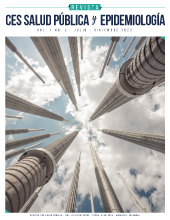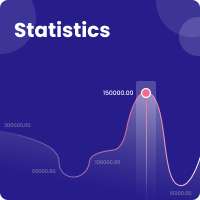Immunoepidemiology and critical epidemiology
DOI:
https://doi.org/10.21615/cesspe.7173Keywords:
vaccination, population immunity, immunoepidemiology, epidemiology, social determinants of healthAbstract
The present work arises as an academic exercise of the educational experience "Critical Epidemiology" of the postgraduate Master's Degree in Public Health of the Universidad Veracruzana, it is intended to carry out a critical analysis of the thesis work carried out during the stay in it.
Vaccination is one of the most effective preventive strategies in public health. Vaccinating involves preventing diseases and infections through the activation of the adaptive immune system, after the generation of neutralizing antibodies and specialized cells. Seen from the community point of view, a protective immunity known as population immunity is generated, which reduces the chances of contagion. Evaluating the vaccination campaign against SARS-CoV-2 is essential, it is evident that it is impossible to ignore the data generated by classical epidemiology as indicators of incidence or relative risk; However, incorporating evaluation strategies such as immunoepidemiology, which in the same way generate direct knowledge about the effectiveness of the vaccine, would contribute even more to the simplistic views prevailing in epidemiology. However, this type of approach is still insufficient, it is necessary to evaluate the vaccination campaign from the critical perspective of epidemiology, question the decisions made and be aware that there is time to carry out seroprevalence studies of antibodies against the virus taking into account account the social determinants of the health of the Mexican population, seeking self-determination without waiting for the results that the countries of the global north could generate.
Downloads
References
Borràs E, Domínguez À, Salleras L. Evaluación de la efectividad de los programas de vacunación. Gac Sanit. 2011 Jun; 25:49–55.
Diaz Bautista Sergio, de la Cruz Rodríguez Yuridia Nayely. La vacunación contra la COVID-19 y su regionalización en México. Revista Cientifíca de Enfermería. 2022 Jun; 11:63–74.
Ochoa Azze Rolando F. Inmunoepidemiología y Estrategias de Vacunación. Finlay. 2007;1–67.
Rueda-Barrera EA. Teoría Crítica, riesgo y justicia en salud pública. Revista Gerencia y Políticas de Salud [Internet]. 2012 [cited 2022 Oct 13];11(22):12–25. Available from: http://www.scielo.org.co/scielo.php?script=sci_arttext&pid=S1657-70272012000100002&lng=en&nrm=iso&tlng=es
Breilh J. La determinación social de la salud como herramienta de transformación hacia una nueva salud pública (salud colectiva). Revista Facultad Nacional de Salud Pública [Internet]. 2013 [cited 2022 Oct 13]; 31:13–27. Available from: http://www.scielo.org.co/scielo.php?script=sci_arttext&pid=S0120-386X2013000400002&lng=en&nrm=iso&tlng=es
de la Cruz Ayuso C. Bioética y justicia global. Análisis crítico sobre la estrategia global de vacunación COVID-19. Revista de Medicina y Ética. 2022 Jan 2; 33(1):85–122.
Marcotte H, Piralla A, Zuo F, Du L, Cassaniti I, Wan H, et al. Immunity to SARS-CoV-2 up to 15 months after infection. iScience. 2022 Feb;25(2): 103743.
Downloads
Published
How to Cite
Issue
Section
License
Copyright (c) 2023 Revista CES Salud Pública y Epidemiología

This work is licensed under a Creative Commons Attribution-NonCommercial-ShareAlike 4.0 International License.
Derechos de reproducción (copyright)
Cada manuscrito se acompañará de una declaración en la que se especifique que los materiales son inéditos, que no han sido publicados anteriormente en formato impreso o electrónico y que no se presentarán a ningún otro medio antes de conocer la decisión de la revista. En todo caso, cualquier publicación anterior, sea en forma impresa o electrónica, deberá darse a conocer a la redacción por escrito.
Plagios, duplicaciones totales o parciales, traduccones del original a otro idioma son de responsabilidad exclusiva de los autores el envío.
Los autores adjuntarán una declaración firmada indicando que, si el manuscrito se acepta para su publicación, los derechos de reproducción son propiedad exclusiva de la Revista CES Salud Pública y Epidemiología.
Se solicita a los autores que proporcionen la información completa acerca de cualquier beca o subvención recibida de una entidad comercial u otro grupo con intereses privados, u otro organismo, para costear parcial o totalmente el trabajo en que se basa el artículo.
Los autores tienen la responsabilidad de obtener los permisos necesarios para reproducir cualquier material protegido por derechos de reproducción. El manuscrito se acompañará de la carta original que otorgue ese permiso y en ella debe especificarse con exactitud el número del cuadro o figura o el texto exacto que se citará y cómo se usará, así como la referencia bibliográfica completa.
| Article metrics | |
|---|---|
| Abstract views | |
| Galley vies | |
| PDF Views | |
| HTML views | |
| Other views | |



